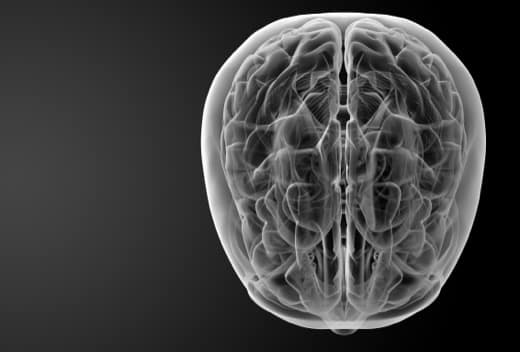In the United States, nearly one and a half million people sustain a traumatic brain injury every year. At least five and a half million Americans currently live with disabilities resulting from a traumatic brain injury. A traumatic brain injury is caused by a blow or jolt to the head, causing severe disruption regular brain functions. The degree of a traumatic brain injury can range from a mild concussion to the extremes of coma or even death.
Accidentally sustaining a traumatic brain injury can happen very quickly and without warning, especially if you are engaged in sports, or other highly physical activities. However, if you or a loved one has suffered a brain injury as the result of individual’s actions, you may be able to seek compensation if you are injured as a result of the wrongful conduct or negligence of the individual. In United States, millions of people are filing personal injury lawsuits for traumatic brain injuries every year. The leading causes of these types of injuries included in their lawsuits are:
- Birth injuries – Brain damage can happen from a long labor where the brain is compressed in the birth canal for far too long, or, more likely, from a difficult labor. However, if there are signs that your infant’s traumatic brain injury was caused by blunt force trauma, compression due to a forceps extraction injury, or if the infant is dropped, you may be able to bring a lawsuit against your doctor.
- Medical Negligence – You will be able to seek compensation if you sustain a traumatic brain injury while under the care of your doctor, and if fails to perform within the boundaries of a reasonable standard of care or acts negligently. Acting negligently means your doctor or healthcare provider failed to properly explore all possible causes of your illness or condition, incorrectly treated your condition, or caused scars, disfigurement, or physical disabilities in the carrying out of your treatment or surgery—resulting in a traumatic brain injury.
- Vehicle accidents- When your head is suddenly twisted with the impact of an automobile crash, the brain will move around as well. Billions of nerve cells communicate with other distant cells through long nerve fibers. These delicate fibers can be stretched during an accident, damaging the ability for cells to communicate with each other—resulting in injury to the brain. Internal bleeding in or around the brain, severe swelling , and free flowing blood clots leading can disrupt the oxygen supply to the brain and cause even more damage. Severe whiplash can occur will result potentially put the victim in a coma. If you were involved in a car accident where the other driver is at fault, you may be able to seek compensation of your injuries.
- Work-related accidents – Falling down broken steps, slipping on unmarked wet floors, fallen debris, toppling from unsafe ladders, and related falls are the most common cause of traumatic brain injury overall, and can occur in your workplace. Persons who work high-risk industries such as construction may have a more difficult time proving that their employer is at fault for their injuries, than a person working in a low risk industry such as teaching. In any event, injuries from accidents at work can happen at any time; however, if your employer is negligent in maintaining the condition of your workplace, or is exposing you to unnecessary harm, then you may be able to seek compensation for your injuries.
Symptoms of Traumatic Brain Injuries
The warning signs and symptoms of a traumatic brain injury are usually subtle. Symptoms of a traumatic brain injury may not appear until days or weeks following the injury or may be too subtle to notice at all. Following an accident, you may feel fine even though you may be acting differently. According to the U.S. Centers for Disease Control and Prevention (CDC), the following symptoms are common warning signs of a traumatic brain injury:
- Blurry vision or tired and heavy eyes;
- Changes in sleeping patterns (sleeping a lot more, or having a hard time sleeping);
- Difficulty remembering, concentrating, or making decisions;
- Feeling tired all of the time, having no energy or motivation;
- Getting lost or easily confused;
- Headaches or neck pain that do not go away;
- Increased sensitivity to lights, sounds, or distractions;
- Lightheadedness, dizziness, or loss of balance;
- Loss of sense of smell or taste;
- Mood changes (feeling sad or angry for no reason);
- Nausea;
- Ringing in the ears; and
- Slowness in thinking, speaking, acting, or reading.
If you or a loved one is experiencing any of the symptoms of a traumatic brain injury listed above, it is imperative that you seek medical help as soon as possible. To delay in seeking medical attention for a TBI can be very dangerous, and may have serious consequences.
Seeking Legal Representation
Injuries suffered as a result of a traumatic brain injury can be severe and life altering. Consult with a lawyer who is experienced in personal injury cases involving traumatic brain injuries. Our personal injury lawyers at Ted A. Greve & Associates, P.A represent clients and their loved ones located in the Atlanta, Georgia area—who have suffered severe brain injuries by the wrongful conduct or negligence of another person. At Ted A. Greve & Associates, P.A., we will do our best to ensure that you get the compensation for your injury that you deserve. We will always conduct an investigation on your behalf, consult with medical and other experts, gather and organize evidence, and negotiate for a fair settlement offer.
Atlanta residents, if you or a loved one has suffered a brain injury, contact our experienced personal injury lawyers in Atlanta GA online or call us directly to set up an online FREE consultation to discuss your legal options and learn more about the compensation you deserve.


